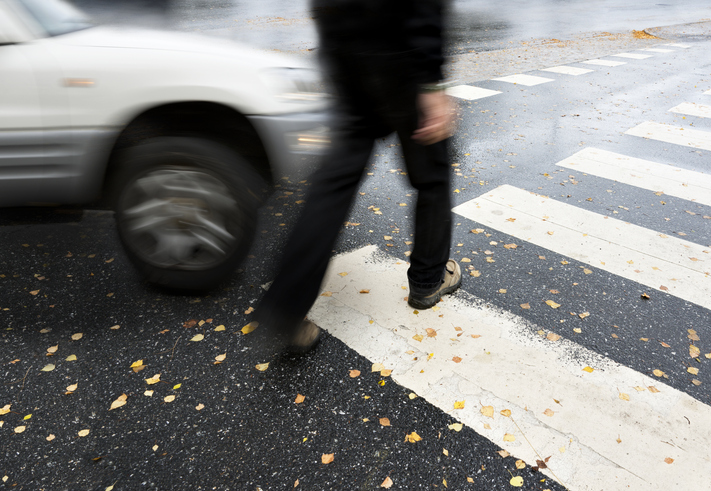Accidents can happen in the blink of an eye, leaving you shaken, confused, and unsure about what to do next. In the moments and days following an accident—whether it’s a car crash, a slip and fall, or another injury-causing event—your actions can have a significant impact on your ability to recover physically, emotionally, and financially. Unfortunately, many people make mistakes in the aftermath that can damage their chances of securing fair compensation.
Below are some of the most common pitfalls to avoid after an accident, along with practical steps to protect yourself.
1. Admitting Fault Too Soon
In the immediate aftermath of an accident, it’s natural to want to apologize or explain what happened—especially if you’re feeling overwhelmed. However, admitting fault (even casually) can have serious legal consequences. Statements like “I’m so sorry, I wasn’t paying attention” may later be used as evidence against you, even before a full investigation has taken place.
The truth is, determining fault isn’t always straightforward. Multiple factors—such as road conditions, the actions of other parties, or even defective equipment—can contribute to an accident. Leave the determination of fault to law enforcement, insurance adjusters, and, if necessary, the courts. The safest approach? Stick to the facts when speaking to others at the scene and avoid speculative statements.
For more on why you should be cautious with your words after an accident, the National Safety Council offers helpful resources on accident response best practices.
2. Failing to Seek Prompt Medical Attention
Even if you feel fine after an accident, it’s critical to get checked by a medical professional as soon as possible. Many injuries—such as concussions, whiplash, and internal bleeding—may not present symptoms immediately. Delaying treatment can put your health at risk and create doubt about the severity of your injuries when filing an insurance claim.
A medical record documenting your injuries not only supports your recovery but also serves as valuable evidence in any legal case that may arise. Skipping this step could make it harder to connect your injuries to the accident later.
According to the Centers for Disease Control and Prevention, timely diagnosis and treatment after an injury can significantly improve outcomes and prevent long-term complications.
3. Not Documenting the Scene
In the chaos after an accident, it’s easy to forget to gather information. However, proper documentation can make all the difference in proving your case. Take photographs of:
-
Vehicle damage
-
The accident location from multiple angles
-
Visible injuries
-
Weather and lighting conditions
-
Hazardous elements like wet floors, debris, or damaged infrastructure
Also, collect names, contact details, and insurance information from all involved parties and witnesses. If law enforcement responds, ask for the accident report number so you can obtain a copy later. This type of evidence can help establish liability and strengthen your claim.
The Insurance Information Institute offers a comprehensive accident checklist worth reviewing.
4. Talking to Insurance Adjusters Without Preparation
Insurance companies are not in the business of maximizing payouts—they’re in the business of minimizing them. Adjusters may seem friendly, but their goal is often to get you to make statements or accept offers that save their company money.
It’s important to be polite but cautious. Avoid providing recorded statements or signing documents before you understand their implications. Anything you say could be used to undermine your claim, so it’s wise to seek legal advice before engaging in lengthy discussions.
5. Settling Too Quickly
After an accident, you might be eager to put the experience behind you and accept the first settlement offer you receive. But initial offers are often far lower than what you may be entitled to, especially if your injuries require long-term treatment or result in lost income.
Once you accept a settlement, you typically waive your right to pursue additional compensation—even if you later discover your injuries are more severe than you thought. Take the time to fully assess your medical condition, the impact on your life, and your financial losses before making a decision.
6. Not Consulting an Attorney
While not every accident requires legal representation, many situations benefit from professional guidance—particularly when injuries are serious, liability is disputed, or insurance companies are uncooperative. An attorney can evaluate your case, gather evidence, negotiate on your behalf, and help ensure your rights are protected.
If you’ve been injured in an accident, it’s wise to speak to a personal injury lawyer, like Simon Bridgers and Spires, before making decisions. Having an advocate on your side can level the playing field and help you secure fair compensation for your losses.
The Bottom Line
The moments after an accident can feel like a blur, but your actions matter. Avoiding these common mistakes—admitting fault, delaying medical care, failing to document the scene, speaking to insurers without preparation, settling too quickly, and skipping legal advice—can make the difference between a fair recovery and a costly misstep.
By staying calm, gathering information, seeking prompt medical care, and consulting with a legal professional, you can protect both your health and your financial future.







